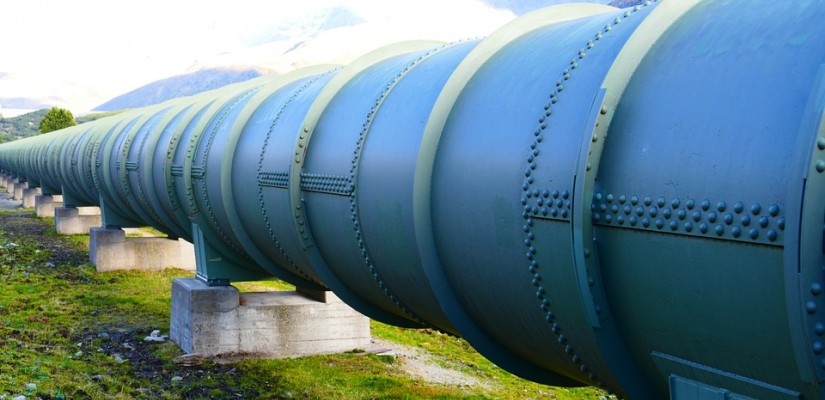Nord Stream 2 is a gas pipeline mega-project between Germany and Russia that has been a subject of contention for politicians from Europe and the United States. Opponents refer to the Nord Stream 2 as a harmful political project while advocates claim that it is necessary for European energy security. Germany, Russia, Ukraine, and the US all have a significant stake in the new gas pipeline, engaging in a tug of war to defend their own political and financial interests.
Nord Stream 2 is the follow-on project of Nord Stream, a sub-sea natural gas pipeline connecting Vyborg in northwestern Russia and Greifswald in northern Germany through the Baltic Sea. It is an energy expressway between the largest natural gas reserves in Russia and the European Union (EU). Stretching 1.230 km (764 miles) and transporting 55 billion cubic meters (2 quadrillion cubic feet) of natural gas, Nord Stream 2 is set to supply millions of households in the EU with energy. The investment of 8 billion euro (9 billion USD) is divided between Russia’s major gas company Gazprom and western natural gas market leaders OMV, ENGIE, Royal Dutch Shell, Uniper, and Wintershall.
The pipeline traverses the waters of five countries: Germany, Denmark, Sweden, Finland, and Russia. All states except Denmark have agreed to the project. While construction work has already begun, Denmark’s authorities are wavering and have yet to give their official approval. This could imperil the timely operation start of Nord Stream 2 at the end of 2019. According to estimates by the involved construction firms, the pipeline will be completed and ready for operation by mid-2020.
Proponents of the project argue that the production of natural gas in the EU will fall by 2035, but consumption levels will remain the same and that Nord Stream 2 will be necessary to fill this gap. Advocates also claim that natural gas deliveries from Russia would aid Germany significantly in reducing its dependence on coal-based energy, which has become more contentious in recent years as concerns of climate change have grown.

Poland, the Baltic states and the EU Commission have expressed their discontent with Nord Stream 2, warning that Russia would be able to increase its control over energy flows in the region. Ukraine and the US have also been vocal about their disapproval of this pipeline. The government in Kiev opposes the construction project because Ukraine would suffer heavy financial losses. With the successful completion of Nord Stream 2, natural gas deliveries would circumvent routes passing through Ukraine, which profits from transit fees worth billions of euros. Yet even if opponents in Kiev brought the Nord Stream 2 initiative to a standstill, Russia would seek alternative gas delivery routes to weaken Ukraine. Highly strained diplomatic relations between Russia and Ukraine have made the region a center of conflict since 2014 when the Russian military began intervening in and seizing control of parts of Ukraine.
Similarly, US officials have shown concern over the new Russo-German gas pipeline, warning European authorities of the risks of excessive dependence on Russian energy. US President Donald Trump and Secretary of State Mike Pompeo have threatened sanctions against companies involved in the Nord Stream 2 project. The US has also pressured the EU to import larger amounts of liquid natural gas from the US instead. Russia, one of the United States’ main political rivals, has accused the US of unfair market competition.
While sanctions would harm European and Russian businesses, an immediate halt of the project would also lead to immense financial losses, as Nord Stream 2 is already under construction and is soon to be completed. In addition, ceasing construction is not a simple task from a legal point of view. Despite internal pressure from German politicians and international resistance from Eastern European and French politicians, legally binding contracts and permissions have already been signed. This means that Germany would have to pay regress claims to Russia for breaking the agreement.
To oppose this project, EU officials could potentially impose stricter regulations to hamper the project and Denmark could slow down the completion of the construction. If such steps are taken, Germany would have to reassess the financial and political ramifications in order to determine future steps. Considering that Russia is a key energy trade partner of the EU, Germany may prioritize regional energy supply regardless of energy alternatives from the US or the threat of sanctions.
